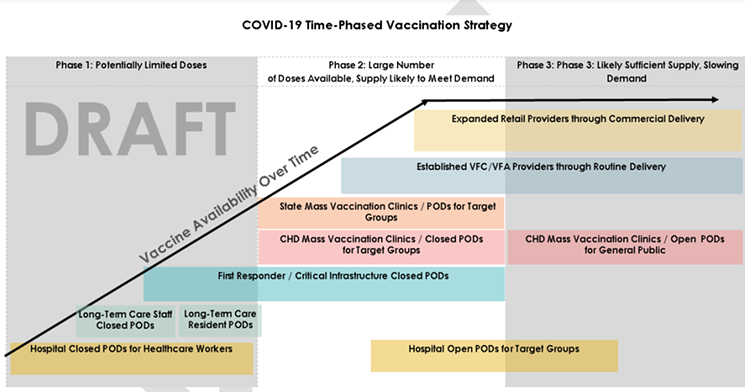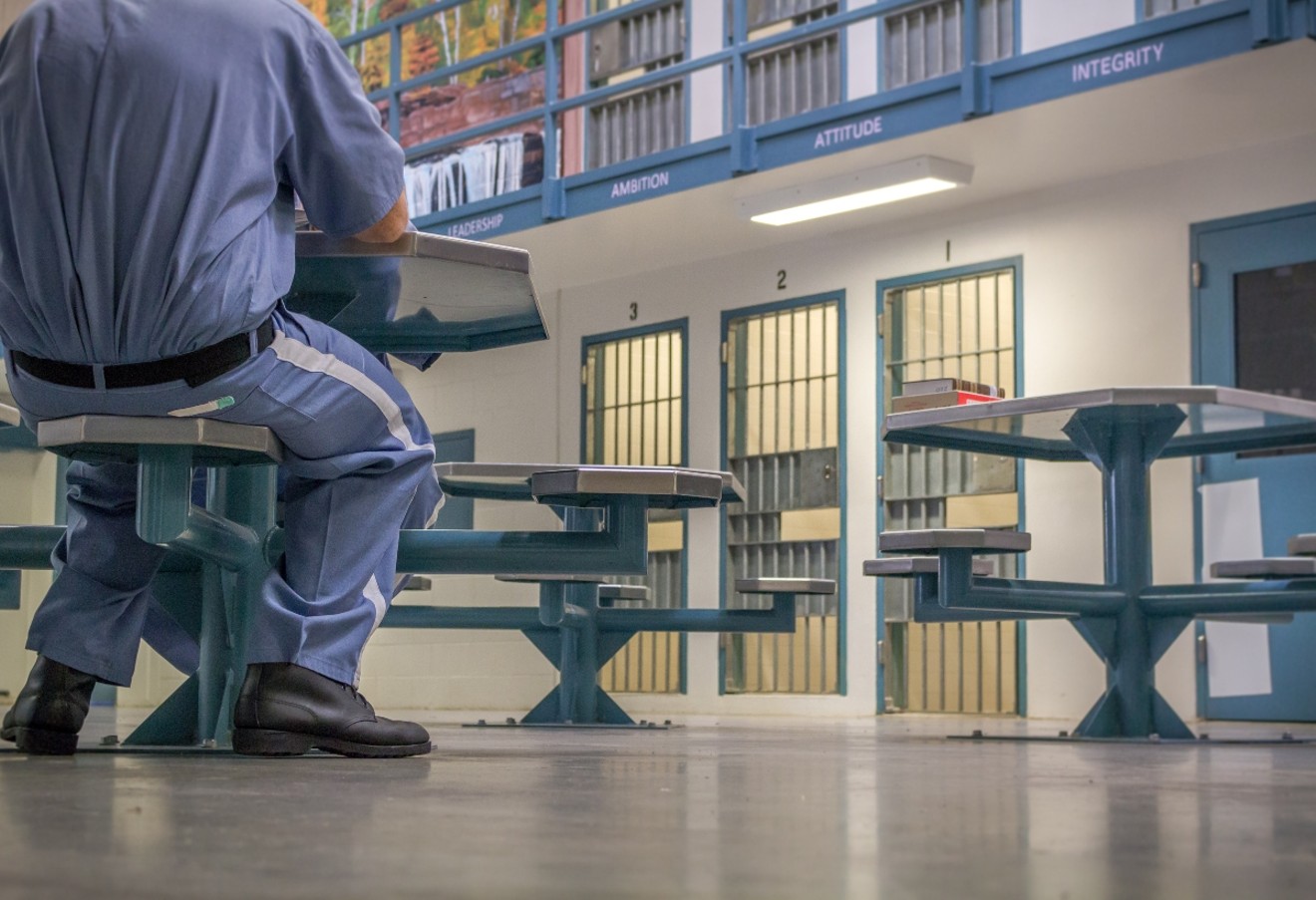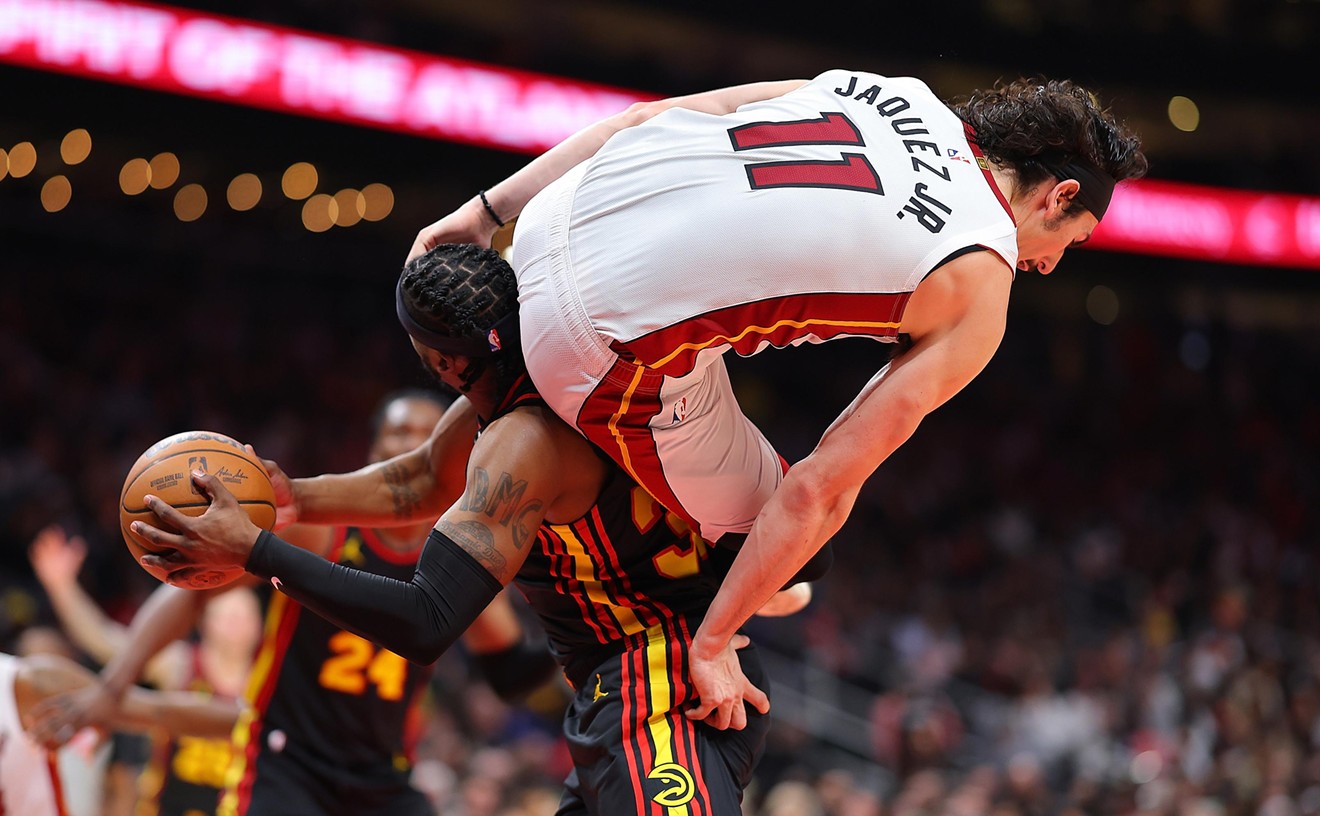In October, the DOH released a draft that outlined the state's three-phase plan for rolling out the vaccine. The plan said first responders and healthcare workers would be vaccinated in the first phase and the general public would have widespread availability in the third.
But the plan does not mention in what phase Florida's corrections officers, workers, or inmates would be receiving vaccines, making it one of only seven states that doesn't have corrections staff mentioned in its phased rollout.
The DOH plan identifies people in corrections and detention facilities as a "critical population" for vaccination but provides no written guidance other than to say that the state health department will coordinate with the Florida Department of Corrections (FDC) in vaccine planning efforts.
The DOH did not respond to questions from New Times about when corrections staff or incarcerated people would be vaccinated.

Florida's draft vaccination plan does not include state corrections staff or incarcerated people in any of the rollout phases.
Screenshot via Florida Department of Health
Florida has already begun rolling out doses of the vaccine to nursing-home workers and residents, but corrections staffers and inmates are still waiting to hear when they'll receive vaccines.
Jim Baiardi, president of the state corrections chapter of Florida's Police Benevolent Association union, says he recently contracted COVID from his wife, who works at Dade Correctional Institution. He says he has been asking the Florida Department of Corrections for its plans on vaccinating prison personnel but hasn't received any concrete information.
"I've been on the department trying to get some information out of them, and the department doesn't have a plan in place yet. We don't know where officers or inmates are gonna fall in on this," Baiardi tells New Times.
Reached by New Times, a spokesperson for the FDC said the corrections department is waiting on further instruction from the Florida Department of Health.
"FDC has applied to the Florida Department of Health COVID-19 Vaccination Program. FDC will receive further direction on distribution from DOH as supplies become available," the spokesperson said in an email.
Baiardi believes corrections staff should get priority for vaccinations because they could potentially spread the virus from their homes to the inmates under their supervision.
Baiardi's point is echoed by some prison advocacy organizations. Denise Rock, the executive director of Florida Cares, a nonprofit that advocates for incarcerated people, says prison workers need to be a priority for vaccinations in order to stem the tide of COVID.
"If the staff were vaccinated, there would be a reduced need to have incarcerated individuals vaccinated, because they're in a protected environment," Rock tells New Times. "We're in agreement that the officers and staff should be considered frontline workers and get vaccinated first."
Baiardi says the state has done a poor job at controlling the coronavirus inside of corrections facilities and needs to get on track before it's too late.
"The scary part is, here we are in January giving out vaccines and we don't know what the plan is," Baiardi says. "The virus is still running rampant in Florida prisons. We're not out of the woods yet."












